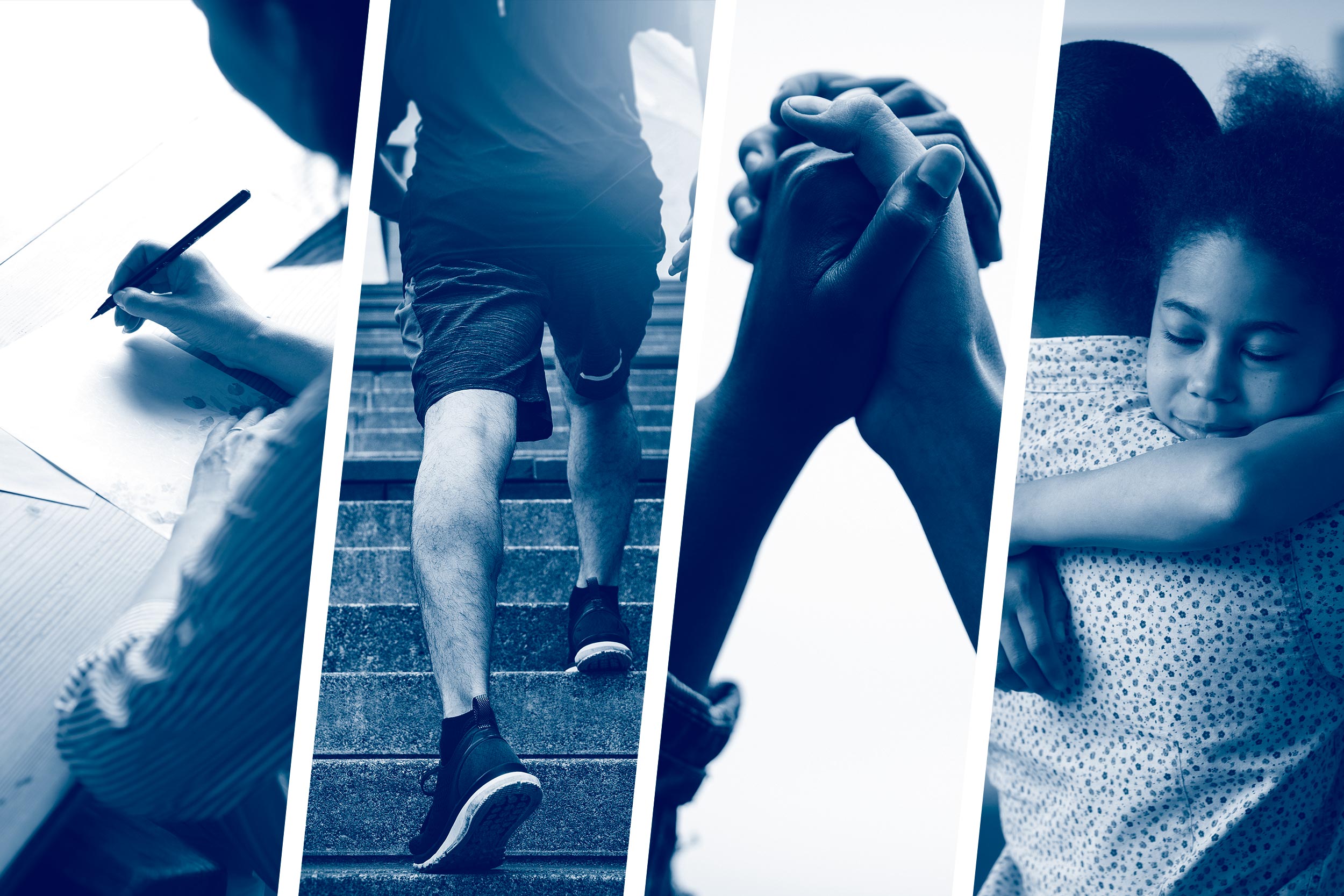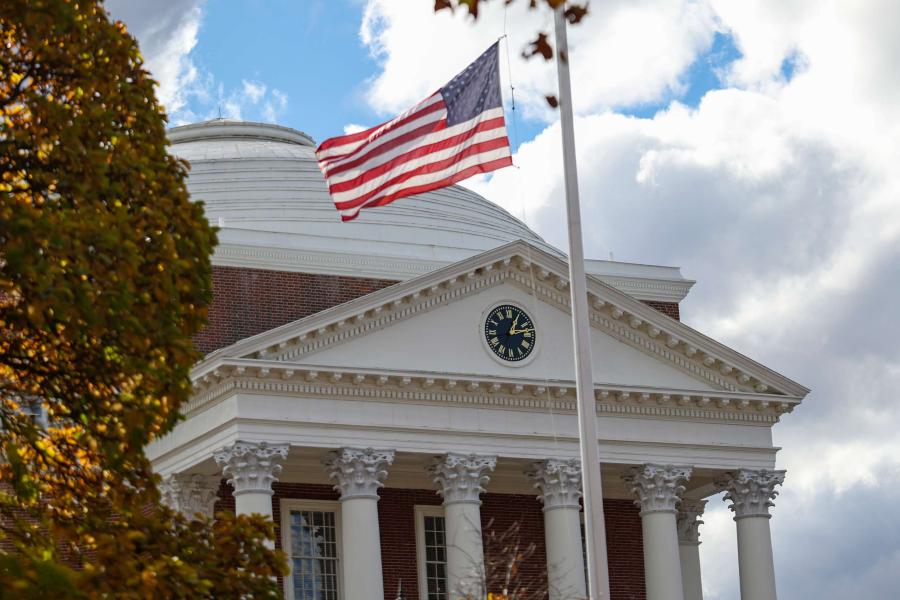The first month of 2021 is nearly over, but that doesn’t mean your chance to make the new year a great one has ended.
The University of Virginia is known for its outstanding faculty. UVA Today reached out to several of them, and a vice president, to ask for their advice for a happier, healthier 2021.
Here, you will find a wide range of recommendations, from what those in public policy can do to make improvements in the new year to the importance of keeping joy, laughter and gratefulness in your life.
Read on for those and other tips for the new year.
Shigehiro Oishi, Professor of Psychology, expert in social psychology, College of Arts & Sciences
We are in transition; the transition of political power, the transition, hopefully, to a post-COVID-19 world. There is still so much uncertainty. Here are a few things I know as a psychologist studying happiness, meaning and psychological richness.
- Make and keep routines. I get up at 6:05 a.m., work until the sunrise (now around 7:30 a.m.), jog, shower and then have a breakfast every day. I feel a sense of accomplishment early in the day. I feel like the day is never completely wasted, even when I don’t get anything done after breakfast (unfortunately, quite a few days are like that). Research shows that people who report having a higher sense of meaning in life tend to have routines in their everyday lives. That same research even showed that experimentally inducing a routine increased participants’ sense of meaning, presumably because routines give one a sense of coherence and structure. In an uncertain time, it is good to have something certain, especially good routines.
- Be grateful. When my wife and I want to complain about our lives, we try to remind ourselves that we should be grateful, that we are lucky to have jobs, each other, our children and more. COVID-19 has brought so many losses and tragedies, to the point that the number of new cases and deaths became a bit of a blur, which is horrible. Other research shows that being grateful is associated with less physical symptoms, for example headaches, and more happiness. A UVA study by Sherrell J. Aston Professor of Psychology Tim Wilson and his students found that counter-factual gratitude is particularly powerful. Namely, when participants thought about how they might have never met their romantic partner, their happiness increased a lot. So, from time to time, we should all think about how we might have never gotten a chance to come to UVA or meet our loved one and be grateful for what we have during the pandemic.
- Add some novelty in life. Finally, although routines anchor your day and life in general, having routines alone can be quite boring. Life during the pandemic can be extremely boring. No restaurants, no parties, no basketball games to attend. Zoom meetings are often exhausting. My research team (the paper is in press) found that people tend to feel happier and find their day to be more interesting when they did something new, met someone new, or ate something new. So, I try to go hike different trails, go to different places and even eat different types of chocolate. Even the little things we can change can reap great benefits.
Joseph Allen, Hugh Kelly Professor of Psychology and expert on teen development, College of Arts & Sciences
Give your teens a chance to contribute.
Our teens are suffering horribly, perhaps more so than almost any other group, from the isolation brought on by COVID-19. This is because of how crucial developing peer relationships are at this stage in life. That’s a tough problem for parents to solve, but they can help.
Teens, from time immemorial, are hard-wired to want to have an impact on the world. Indeed, many acts of vandalism can be traced to a misguided effort to actually “see something happen.” So let’s give them a way to have an impact. They can paint their room, organize the garage or old photos from their parents’ collection. They can learn how to make a weekly meal for the family. The possibilities are limitless, given the endless time available.
And parents, don’t be swayed by the time investment needed for these activities. Yes, some of this will take your time, but it’s not time spent, its time invested in a more competent teen going forward. And yes, teens may object at first … but if they get some input into what they do and how they do it, you’ll most likely find them quite pleased with themselves at the end of it all. And finding anything that can provide a sense of satisfaction is quite an accomplishment in these crazy times.
Gerald Warburg, Professor of Practice of Public Policy, Frank Batten School of Leadership and Public Policy
How can effective and responsible leaders help us move forward? Crisis offers opportunity. Loss reminds us of those values we cherish. As at a funeral, when we grieve the attacks on our Capitol and the deaths of public servants, we also celebrate the core values that unite us.
The nation is at a pivot point. The fever of fascism has been broken. This pivot offers our national community a crucial moment for reflection and renewal. For those of us who are called to teach the next generation of public policy leaders at the Batten School, this work has a clear North Star: Our mission is to renew our national institutions, to call on the wisdom of our founders, and to continue working toward a more perfect union.
Young women and men who sign up for public service – and whose lives were at risk Jan. 6 during the U.S. Capitol riots – are central to this task. Like first responders in a disaster, they are the ones equipped with skills and courage needed as they run toward the fire, toward the danger, not away from it.
In our public policy classrooms, this means rededicating ourselves to first principles. Examining our key government institutions with unflinching eyes. If they require reform, first build a stable bridge – one that can get from here to there in a bipartisan, sustainable fashion. Reject ideologues and demagogues who are good at tearing things down, but clueless about how to build a new foundation. Look hard at policy history – especially the recent past.










